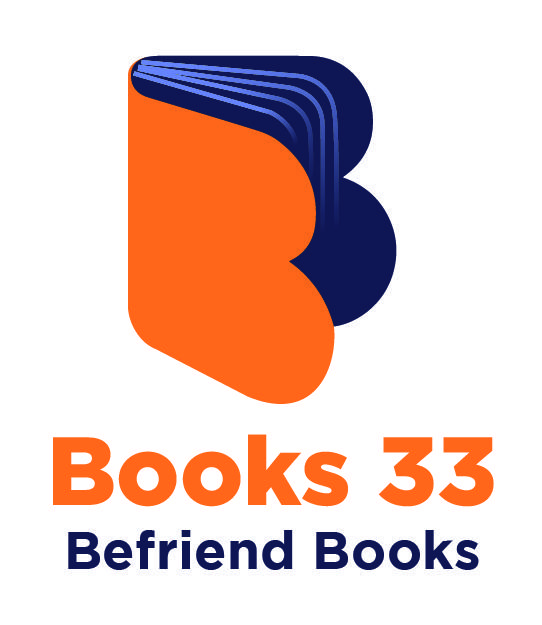Your Friend, the Journal
“How can I know what I think until I see what I say” – W. H. Auden
Journals have accompanied us throughout history
The connection between writing and healing and transformation is an ancient one. There is a Chinese text dating from the year 300AD which speaks to the life enhancing possibilities that arrive though journaling:
He makes barren twigs put forth luxuriant foliage as they sway, or by endless waves he traces to the remote fountainhead
Like mist and rain, it permeates and nourishes
And manifests all the powers of transformation in which gods and spirits share (David. 1991)
In 10th century Japan people had a ‘pillow book’ which was kept in the drawer of a wooden pillow.
The word ‘journal’ derives its meaning from ancient Old French for ‘day’. It is a daily encounter with self. And ‘journal’ echoes the word ‘journey’. We travel and record these journeys in our inner and outer worlds.
Journals serve us well
In the mid-sixties, psychotherapist Ira Progoff, developed an intensive journal process. He uses the image of many underground wells all connected to a deep subterranean stream as a metaphor for our lives. (Progoff, I. 1992) Journals help us plumb these depths in many ways. A journal is both a mirror and a window at the same time – rather like a pane of glass in a shop window. It reflects both what is inside but also what is on the outside looking in. A camera lens suggests different ways of focusing and seeing – magnifying, micro-scoping, widening the angle, changing the layout.
In a journal we deposit and later find quotations, thoughts, memories, experiences, plans, insights, creative ideas, dreams, hopes, fears. It is the ultimate psychologically safe space. We use them for:
- self-reflective writing – a companion to the self. This might include capturing emotional expression when experiencing stressful events, which facilitates sensemaking and may lead to a cathartic process. It becomes a healing ritual to cleanse, purify, forgive, give thanks, affirm self
- problem solving and decision making around personal, relationship and professional issues, assisting in coming to acceptance, achieving inner peace, and the development of new beliefs and habits.
- recording dreams – both in the sense of the inner nightly dramas and future (daylight) hopes that honour the powers of the imagination to set in motion a desired outcome. This may be coupled with inspirational quotations, poems and insights to keep alive your passion for vocation, envision, and set our intention for the future
- observations about your work practice and about the challenges faced by those you coach (individuals or group dynamics)
In the new world that is emerging during the covid-19 we are being called upon to continually react and reinvent to keep pace with radical changes. And we can also elect to proactively steer new courses. In these endeavours our journals become companions along the way.
In Journaling, we Seek a Deeper Identity
Irvin Yalom, existential psychotherapist, has framed the four truths of life – our search to find the enduring meaning of life, wrestling with the fact of and the idea of death and loss, our existential isolation, and what we do with the freedom we have to make our choices. (Yalom, I. 1989) This is rich identity-material for journals.
Austrian poet Rainer Maria Rilke captures this searching:
I am circling around God, around the ancient tower,
and I have been circling for a thousand years,
and I still don’t know if I am a falcon,
or a storm, or a great song.
A young man returned from the city to his village. An elder called him over to sit next to him on a rock, and asked the young man, “Who are you?”
Every time the young man gave a surface answer – name, age, son of chief, student, soccer player – the sage repeated the question.
“Who are you?”
Eventually the young man fell silent.
Then the sage spoke, “You are the wind in these trees, the cry of that bird, the rock beneath us”.
Journaling lets us get to grips with Disruption, Extreme Difficulties and Trauma
“Writing about personally experienced stressors or traumatic events has been associated with improvements in mental and physical health in numerous investigations. For example, writing about stressful or traumatic events has been related to decreased stress and depression, fewer illness-related visits to physicians, and positive changes in immune function. A recent meta-analysis of the effects of written disclosure found that writing about stressful or traumatic events is related to improvements in self-reported health, psychological well-being, physiological functioning, and general functioning. Moreover, the positive effects of written disclosure appear to be equivalent to or greater than the effects produced by other psychosocial interventions”. (Ullrich, P and Lutgendorf, S. 2002)
In trauma counselling – writing as a deliberate exercise some while after the event, allows the victims to view the event from outside of themselves.
“I started writing when I was about nine because I wasn’t able to talk… (after she was raped) … It was my way of keeping in touch I guess” – Maya Angelou (Angelou, M. 1998)
A Suggested Practice for You
Naikan is a Japanese way of practicing self-reflection that combines meditating and journaling. It means “looking inside” so that we learn to develop and express our gratitude, discard our “you owe me” attitudes, improve our well-being and contentedness, become more positive as we realise that all that we have to be grateful for is unmerited, and determine to engage and act to uplift, support and care for others.
The practice is a way of counting our blessings, contemplating the impact of our actions and omissions, and examining our shadow – side based on three questions:
- “What have I received from…? (It may be the other’s time, nod of appreciation, a correction, support, caring.
- “What have I given to…? (the same other. Our self-centred, frenetic, shallow and disconnected way of life often means that our giving is minimal or non-existent)
- “What troubles, difficulties, ‘suffering’ have I caused to ……? (that same person. Ignored a phone call, failed to include, been abrupt with, been unaware (thus ‘inadvertently, unwittingly or ‘by mistake’ hurt that person)
These questions, honestly and fully answered provide much food for soul – thought, help develop compassion, foster mindfulness and the taking of positive action. (Krech, G. 2013)
Conclusion
It’s normal to want to avoid what upsets us, let alone record those things. But like it or not they stay in our subconscious minds until we can embrace and release the pain, and that’s where journaling comes into its own.
Journey-Journaling is a way to clean up the dirt in our lives- to declutter. By writing down our emotions and inner struggles, not letting them accumulate and fester, we are getting in touch with and taking the path to letting go of deep-rooted feelings and the pain we are feeling. Promoting our mental health. On the flip side, recording our gratitude, wonder, joys, appreciation of beauty, achievements, strengths, positive reaching out to others, we reinforce healthy values, viewpoints and habits.
Realistic self- love trumps self-pity.
And it is a discipline that takes only a few minutes a day.
A simple way of explaining and justifying the need for coaches to continuously travel inwards is to think in terms of an interior ‘hero’s journey’ that they record in a journal.
“A hero ventures forth from the world of common day into a region of supernatural wonder: fabulous forces are there encountered, and a decisive victory is won: the hero comes back from this mysterious adventure with the power to bestow boons on his fellow man”. (Campbell, J. 1968)
References
Angelou, Maya (1998) I Know Why the Caged Bird Sings Oxford University Press, USA
Brand, Alice and Graves, Richard (Eds) (1994) Presence of Mind: writing and the domain beyond the cognitive Boynton Cook, Heinemann
Campbell, Joseph (1968) The Hero With A Thousand Faces Bollingen Series XVII, Princeton University Press
David (1991) Lu Ji’s Wen Fu (based on a translation by Shih-Hsiang Chen, 1952, modified after consulting a translation by Sam Hamill, 1991. Writer: David from Seeraa International
Krech, Gregg (2013) The ToDo Institute’s Concise Little Guide to Thanksgiving Reflection ToDo Institute
http://www.todoinstitute.org/download/ThanksgivingReflectionsBooklet2014Krech.pdf
Progoff, Ira (1992) At a Journal Workshop: writing to access the power of the unconscious and evoke creative ability TarcherPerigee
Ullrich, Philp M. M.A. and Lutgendorf, Susan K. Ph.D. (2002) Journaling About Stressful Events: effects of cognitive processing and emotional expression Annals of Behavioral Medicine http://link.springer.com/article/10.1207/S15324796ABM2403_10#
Williams, Graham; Haarhoff, Dorian and Fox, Peter (2015) The Virtuosa Organisation: the importance of virtues for a successful business Knowledge Resources (Chapter14. Writing as Healing, and the Practice of Journaling)
Williams, Graham and Haarhoff, Dorian (April, 2013) Writing as Healing Halo and Noose newsletter
Williams, Graham and Haarhoff, Dorian (June, 2013) Mirror, Lens and Window: keeping a journal Halo and Noose
Yalom, Irvin D. (1989) Love’s Executioner and other tales of psychotherapy Penguin
Resources recommended by Dr Felicia Sumner, author of Heal Your Emotional Wounds – The Benefits of Journaling:
Baikie, K. A., & Wilhelm, K. (2005). Emotional and physical health benefits of expressive writing Advances in Psychiatric Treatment, 11, 338-346. doi:10.1192/apt.11.5.338
https://www.fastcompany.com/3041487/8-tips-to-more-effective-journaling-for-health
Fritson. K. K. (2008) Impact of journaling on students’ self-efficacy and locus of control InSight: A Journal of Scholarly Teaching, 3, 75-83. doi:10.1037/e741342011-010
Grothaus, M. (2015). Why journaling is good for your health (and 8 tips to get better) Fast Company
Stosny, S. (2013) The good and the bad of journaling Psychology Today

About the Author
Graham Williams is an executive coach and management consultant who lives in Cape Town, South Africa. He has worked in over 40 countries in a variety of sectors, authored 9 business books and is a Management Contributor for 12Manage, the world’s #1 management network.
Graham uses narrative, anecdote, metaphor, archetypes, poetry, imagery and conversations in his work. He is passionate about facilitating healing and wholeness in organisations and their members. And is often asked to conduct workshops for coaches on competency development and application areas suitable for the effective use of story, and the powerful possibilities inherent in story.
In this six-part series Graham shares his insights into a number of the key skills required by modern-day coaches.
He may be contacted at centserv@iafrica.com
Want to read more articles like this? Check out our Author Speaks page, here you will find more such content.




 Each title in our collection is more than just a book - it’s a ‘green gift’, promoting mindful reading, sustainable values, and a culture of eco-conscious living. By gifting books, you open doors to new ideas, support lifelong learning, and nurture a more informed, compassionate, and environmentally aware individual.
Each title in our collection is more than just a book - it’s a ‘green gift’, promoting mindful reading, sustainable values, and a culture of eco-conscious living. By gifting books, you open doors to new ideas, support lifelong learning, and nurture a more informed, compassionate, and environmentally aware individual.